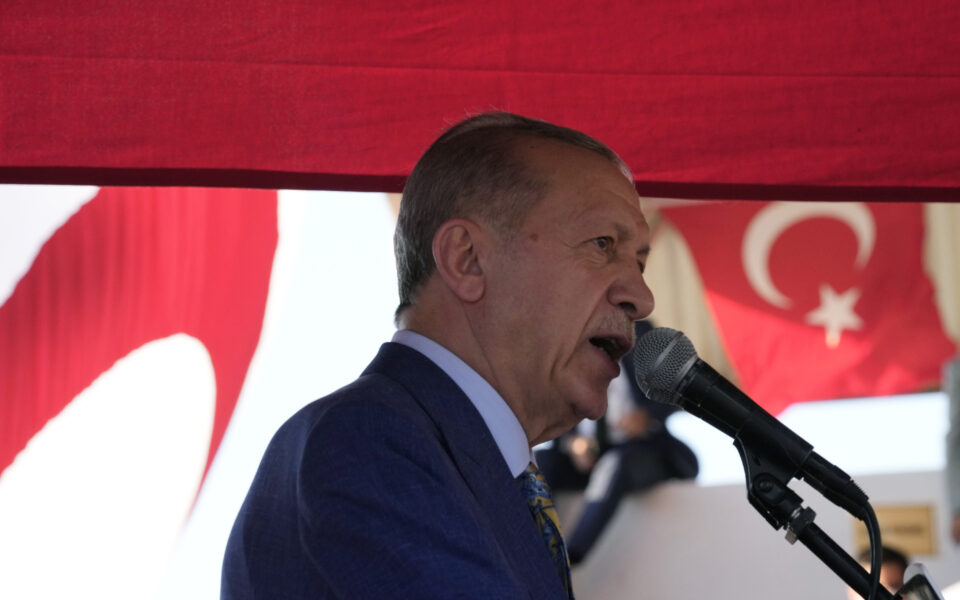Erdogan makes talks difficult

Turkish President Recep Tayyip Erdogan’s decision to tell reporters that in his meeting with Prime Minister Kyriakos Mitsotakis on the sidelines of the NATO summit at Vilnius he brought up the demilitarization of Greece’s eastern Aegean islands and Greek officials’ subsequent denials are proof of how difficult it will be for Athens and Ankara to reach their stated goals to find common ground, reduce tensions and, if possible, agree to the arbitration of the International Court in The Hague.
Erdogan made his claims at the same moment that he ordered two amphibious planes and a helicopter to assist Greece in fighting wildfires, a gesture of goodwill and appreciation for Greece’s assistance after the devastating earthquakes that hit Turkey in February.
Seasoned diplomats in Athens said that the important thing is to focus on the essential above-stated goals.
“Issues touching on our sovereignty were not raised during [the Vilnius meetings] nor could have been debated. [Foreign Minister George] Gerapetritis reiterated this in the most definitive way in Parliament, responding to an MPs query,” a senior diplomatic source said.
Kathimerini correspondent Manolis Kostidis reports from Ankara that Erdogan’s claim was made in order to show that Greece has agreed to discuss all issues that Turkey wants to raise.
Erdogan made the claim to reporters on the plane on his return home from a trip to the Gulf states and Turkish-occupied northern Cyprus. There, he made it obvious that Ankara insists that the only solution to the nearly 50-year-old Cyprus issue is for a definitive partition of the island into two sovereign states.
Highlighting controversial issues, such as demilitarization, which are usually discussed behind closed doors, targets the domestic audience but also serves as a reminder that some of Ankara’s positions do not change. Greece, for its part, has made it clear that it will not yield on its sovereign rights. And demilitarization cannot be agreed at a bilateral level.





